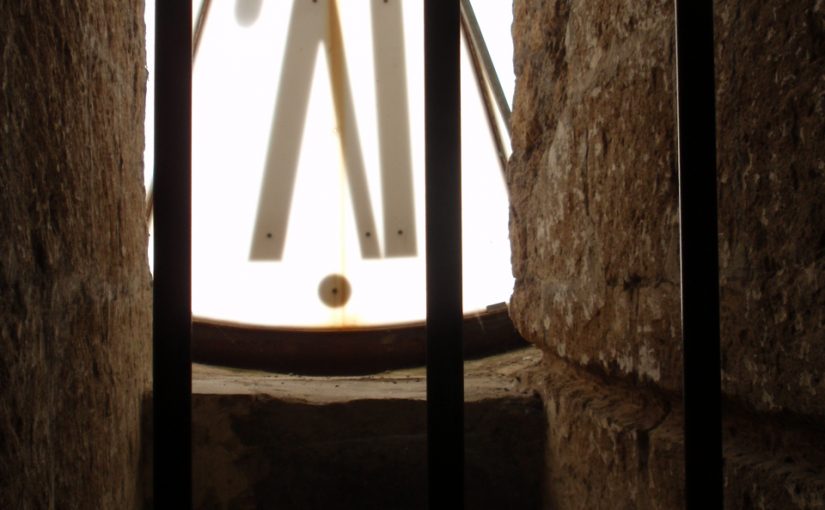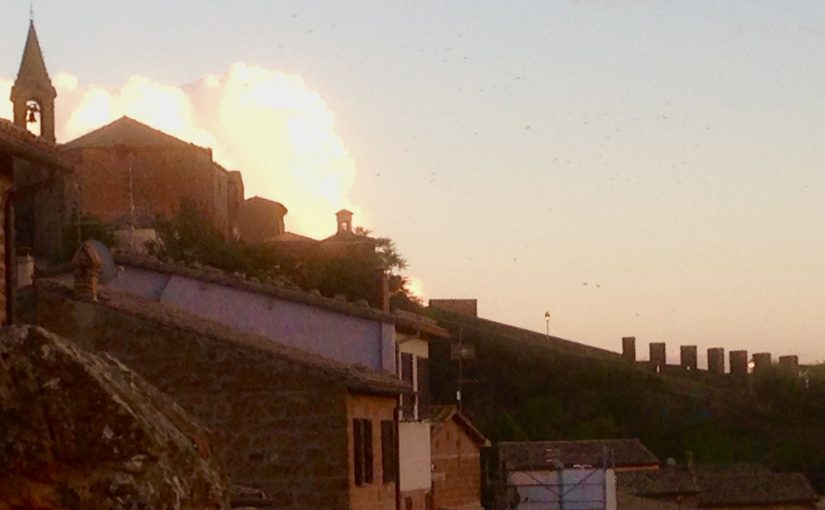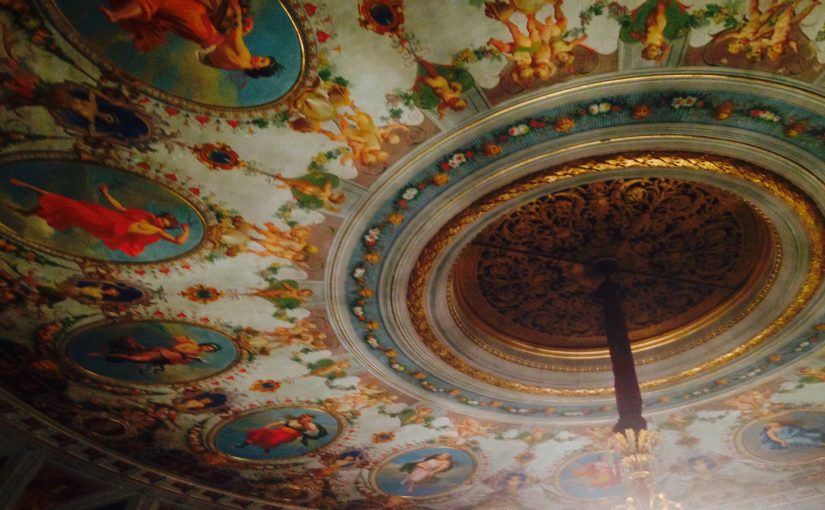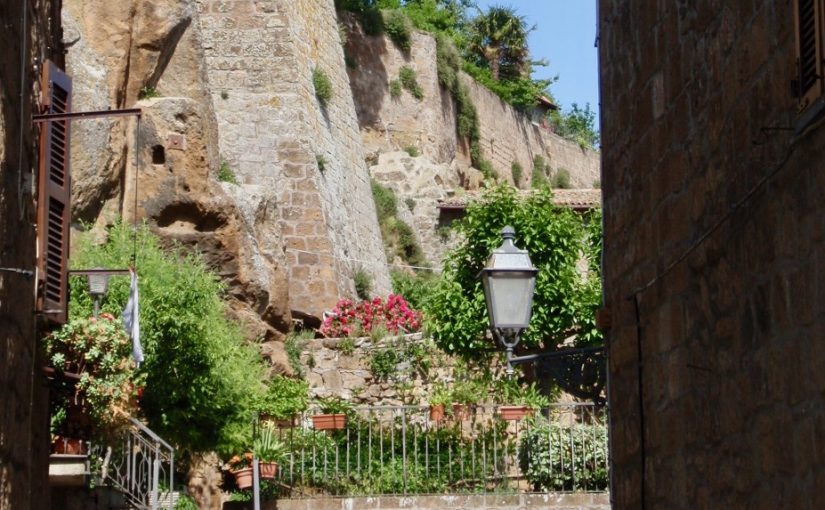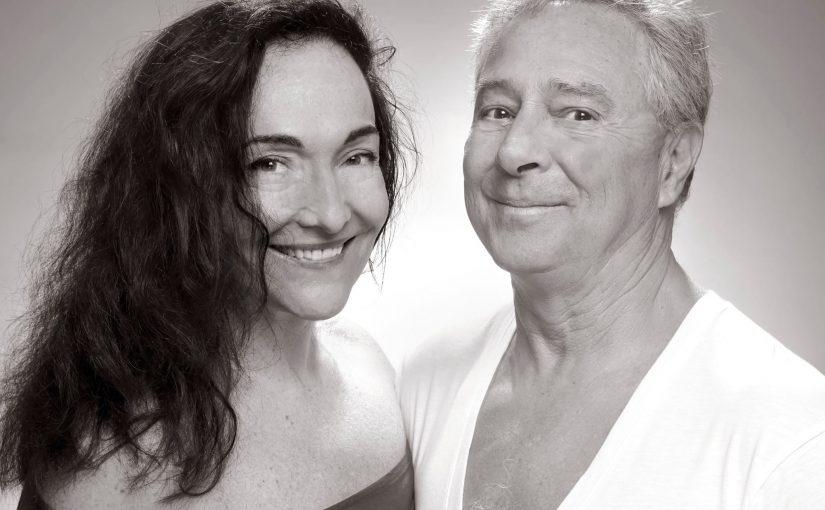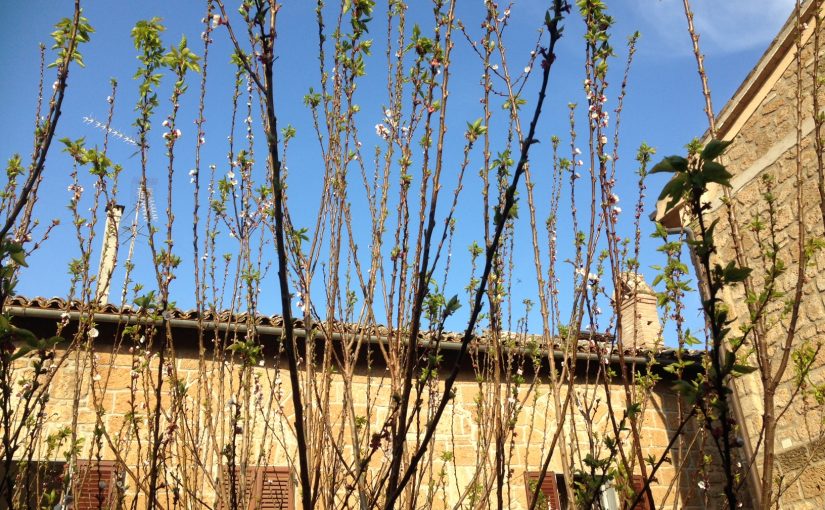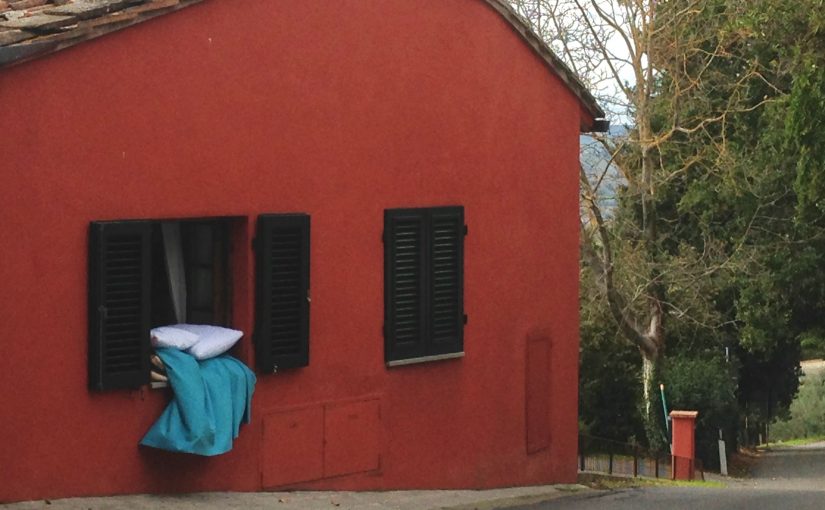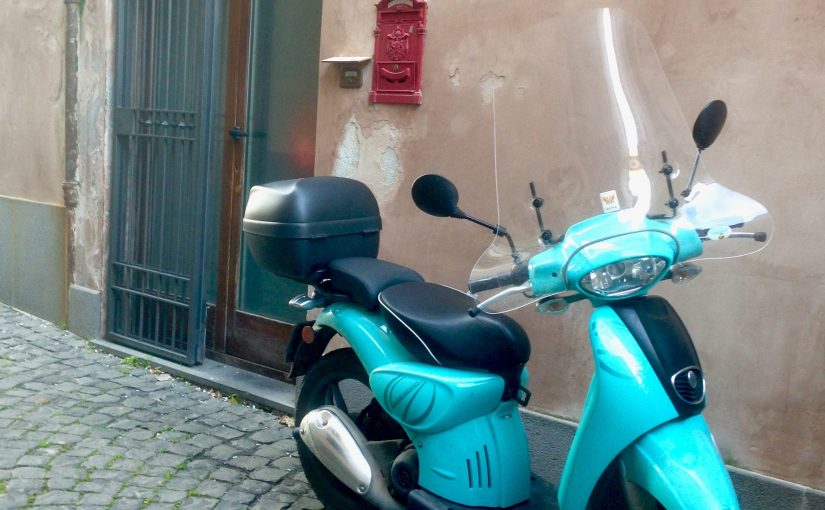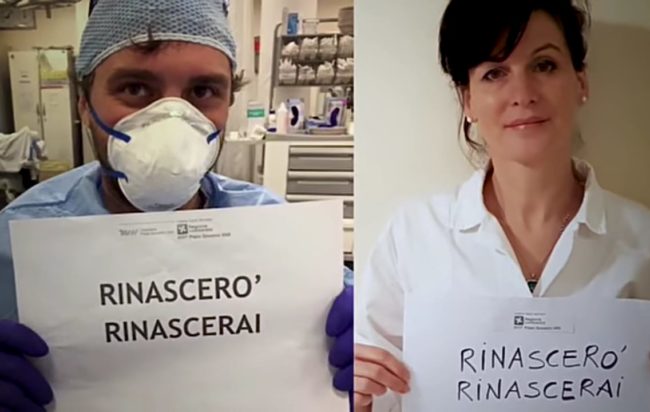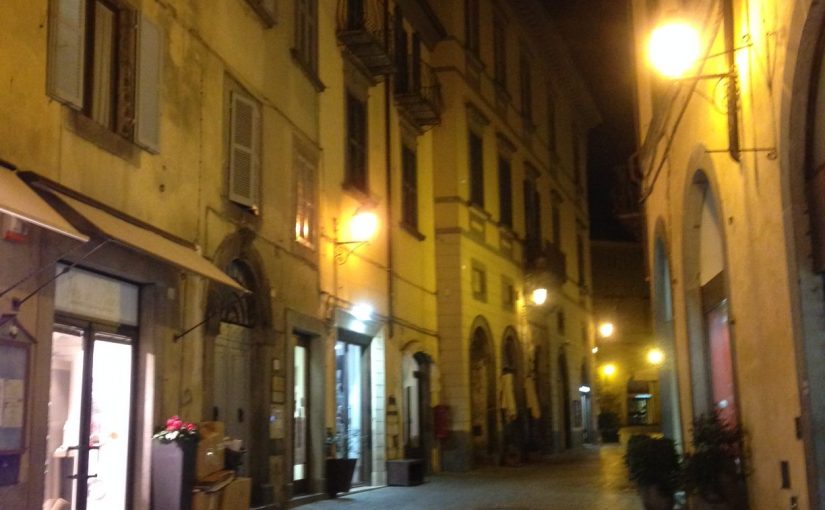Back in the day – and I don’t mean early March, I mean when my life was described by schedules – all it really took to feel like I had time off was to remove my wristwatch. That simple act meant that I didn’t have to keep track of the hour, I could follow my impulses, linger at enjoyable tasks, ignore routine. Plunging into the second month of all things in suspension, I am so hungry for time-related commitments I could scream. And it’s been years since I’ve worn, or even owned, a watch.
My schedule has been slipping randomly around for months now. October in Bratislava was very structured, and I enjoyed it. Back home, I’ve been trying to reestablish order to my day ever since. About as far as that has gotten; I’m pretty good at taking pills.
Last night as I fell asleep I said – almost in full voice, but not quite – I really have to get up at a normal hour (for me, that’s 06:30) and take control of my day. I heard an interview yesterday, and the fellow told how he and his wife, both working at home, had decided from the first day of lockdown to maintain schedules as if they were still going into Manhattan for work. The last time I’ve gone into Manhattan for work was in 2002, but it still made me feel clumsy by comparison. Hence the midnight vow.
Well, talking to myself, even sotto voce, apparently works. I woke at 06:30, was moving around before seven. By nine I had eaten, showered and dressed, and unloaded the dishwasher. By ten I’d meditated. At eleven I took my courtyard walk, and I arrived to wait in line across the street from the fruttavendolo at 12:15. I stood at the door and ordered a list of produce with the confidence of someone who knows what he is going to prepare (totally untrue) and even attempted to use my huge pile of collected coins to pay the bill (didn’t work out, she was short on the necessary paper change). I had the last bowl of Wednesday’s soup for lunch, wrote a few emails, worked on the play I received an epiphany about last week, and walked again for an hour while listening to tear-inducing stories on This American Life. I decided to scramble eggs for supper rather than spending the late afternoon cooking. That would allow me to write a post early and get to bed early, too. Setting priorities.
It was back in the saddle again, time. The wristwatch was metaphorically in place. It felt good, I felt good.
Then Renzo sent me a text. It had a link to a video just posted on YouTube by Metarmonica, the band his son plays drums with. It’s really good. They’re really good. And he followed it up with the fabulous news that Patrizia was making pizza tonight, and that they would have a piece or two for me. Pizza! Pizza and scrambled eggs! Why not?
If you’re waiting for the punchline, so am I. One has not presented itself, yet.
When I first moved to Orvieto for a seven-month trial five years ago next October, I didn’t know it, but I was looking to create a permanent vacation. I’d been taking all my vacations here for twenty years at that point. They were always budget, and often intertwined with work, but they also somehow managed to include beamed ceilings, thick stone walls, pergolas, good wine, great dining, and trips to the lake.
Except for the wine and dining, my first seven months included none of those things. Instead, I described the time to both myself and others as a self-styled writer’s retreat. And true to the maxim that what you say to yourself, even sotto voce, is often how things works out, that is what it became.
I knew few people here, and every venture into Italian society was tinged with linguistic terror, so at three or four every afternoon, I would sit to write and continue until bedtime with an hour off for supper. I accomplished more projects and learned more about craft than I had ever imagined possible. But it was totally unlike any vacation I’d ever taken.
That basic schedule continued until a year ago December, when health became a project of its own. It still is, but what I’m discovering during lockdown is that creativity (cooking, writing, sharing, caring) is a vital component to regaining, or stabilizing, health for me. I don’t need time off to recover, I need a wristwatch.
And that is all I have to say on the subject.
But there is always more to say on the subject of pizza – three kinds, all delicious!
